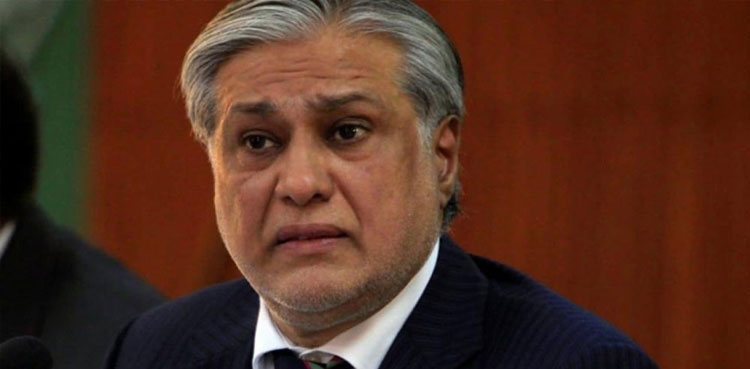Foreign Minister Ishaq Dar said that trade with India via Dubai and Singapore has been much more expensive, and Pakistani businesses are eager for the restoration of direct trade with India. According to him, the government was considering the resumption of direct trade with New Delhi and the decision would be taken after consultations with all stakeholders. Dar claimed that the government would implement a five-year road map to put the country on the road to economic progress and bring down inflation to lessen the economic difficulties of the people.
Islamabad downgraded its diplomatic ties and suspended bilateral trade with India following India’s most controversial move of revoking Article 370 and annulling the special autonomous status of Occupied Jammu and Kashmir on August 5, 2019. Meanwhile, the imposition of a 200% tariff on imports from Pakistan by the Indian government was another reason for Pakistan’s severing trade ties with India. Since then, diplomacy has been on pause, and mutual trade between both countries has been suspended despite the fact Pakistan offered a trade corridor to Afghanistan-India trade from its soil. There had been indirect trade between the two neighbours via Dubai and Singapore but that became much more expensive due to extra freight and transportation charges, port tariffs, and duties at a third country, making it unaffordable and counterproductive for the importers and the consumers. Previously, the Economic Coordination Committee (ECC) approved the import of cotton from India but the Khan-led PTI government immediately backtracked from the decision due to political pressure from the masses and the opponents.
Presently, the bilateral trade between India and Pakistan is a topic of interest for the media, political, and scholarly circles due to the unbearable inflation, particularly the prices of vegetables and daily use commodities are very high in Pakistan as compared to neighboring India. Historically, bilateral trade, sports, tourism, and inter-state civic engagements between Pakistan and India have always been driven by political disputes, security concerns, and domestic politics in both countries throughout the past. Wherein, the political leadership across the border sought to further ignite animosity and confrontation to boost their domestic politics.
Amid a dwindling economy, skyrocketing inflation, and high cost of living, the resumption of trade ties with India is genuinely a good idea. However, the scope of trade with India remains elusive due to a lack of consensus among the stakeholders particularly the need for backing from the military establishment regarding the restoration of trade relations between the two neighbours would be essential. During the process, some political figures in the cabinet or coalition might differ with the idea while others take a realistic view considering Pakistan’s current economic outlook and debt profile. Believably, resuming trade ties with India could help Pakistan mitigate some of its biting economic woes and facilitate some relief to the public.
Despite tension, the two countries agreed to renew the 2003 ceasefire agreement along the Line of Control (LoC) in February 2021 and resolutely upheld that commitment so far. While considering the history of Pakistan Muslim League Nawaz (PML-N) good neighborliness with India and Prime Minister Narendra Modi’s facilitation message for Shehbaz Sharif after he was sworn in as Prime Minister of the country, increased the possibilities for any breakthrough between the two major nations in South Asia. Although trade relations between the two countries have shaped into political issues rather than business or trade disputes. The resumption of bilateral trade would have implications for both countries, regional peace and stability. The conditions are currently conducive from both sides, based on the BJP’s history of exploiting anti-Pakistan sentiments for political gains. New Delhi might not respond appropriately to Islamabad’s offer in pre-election season, yet there are bright scopes for normalization of Pak-India relations in the aftermath of the upcoming election in India. Peace full coexistence, and bilateral cooperation are the only way forward for both countries if this reality is admitted by the leaders from both sides of the border.







